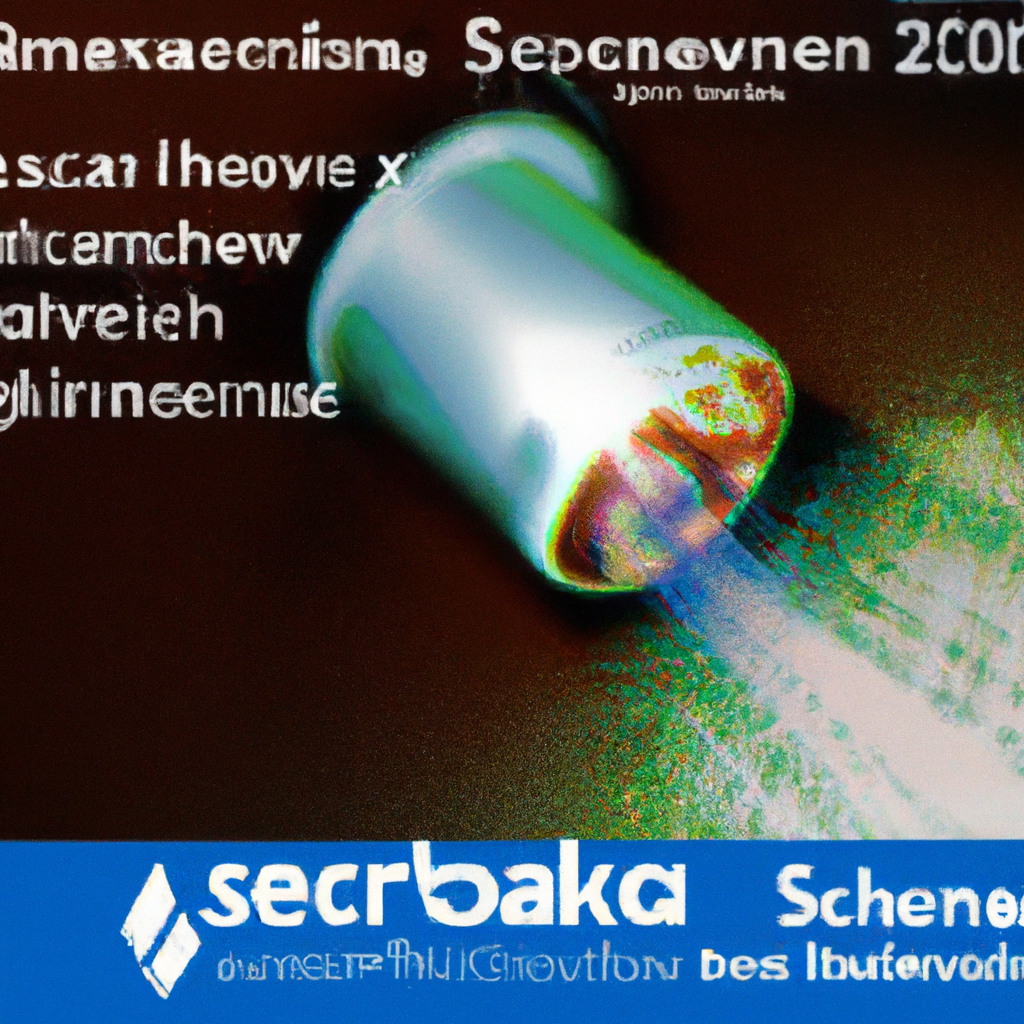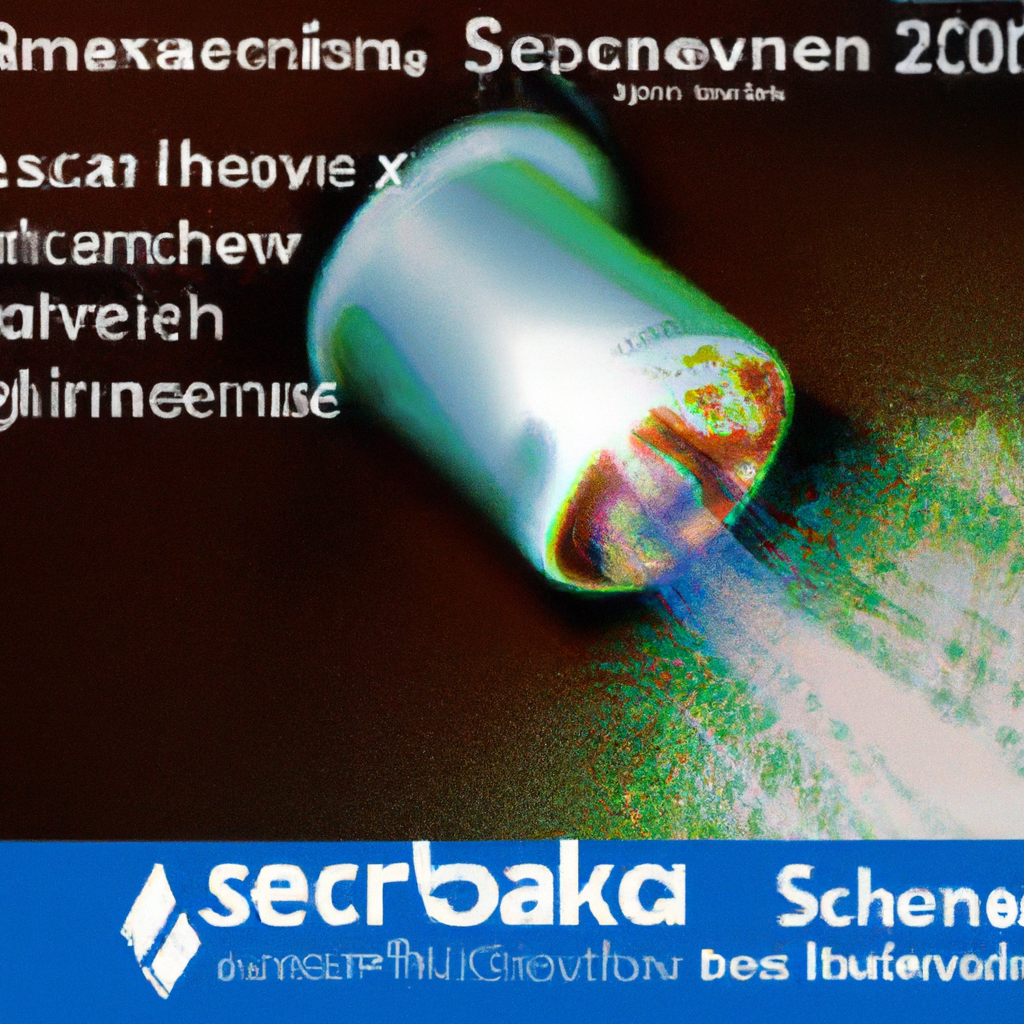You’ll be amazed by the latest innovation in embedded vision cameras! Sheba Microsystems has just launched their revolutionary MEMS Autofocus Actuator, which enables active athermalization. This groundbreaking technology ensures optimal camera performance in any environmental condition, providing crystal-clear images even in extreme temperatures. Say goodbye to blurry images and hello to precision focusing with Sheba Microsystems’ game-changing autofocus actuator.
Sheba Microsystems Launches Revolutionary MEMS Autofocus Actuator for Active Athermalization in Embedded Vision Cameras
Sheba Microsystems, a leading provider of MEMS (Micro-Electro-Mechanical Systems) technology, has just launched a groundbreaking autofocus actuator for embedded vision cameras. This new actuator, based on MEMS technology, promises to revolutionize the way cameras focus in various applications, offering active athermalization for improved performance in different environmental conditions.
With the increasing demand for high-resolution imaging in fields such as surveillance, automotive, and robotics, there is a growing need for camera systems that can adapt to changing environmental conditions while maintaining optimal focus. Traditional autofocus mechanisms often struggle to cope with temperature changes, resulting in image quality degradation. Sheba Microsystems’ MEMS autofocus actuator overcomes this challenge by providing active athermalization, ensuring consistent and accurate autofocus performance even in extreme temperatures.
By leveraging MEMS technology, Sheba Microsystems is able to miniaturize the autofocus actuator while delivering superior performance. This compact size makes it ideal for integration into small form factor devices such as drones, wearable cameras, and mobile phones. The actuator’s active athermalization feature ensures that the camera lens remains focused regardless of temperature variations, ensuring crystal-clear images and videos in any environment.
The MEMS autofocus actuator from Sheba Microsystems is set to redefine the capabilities of embedded vision cameras. Its active athermalization feature, coupled with its compact size, offers unprecedented performance and versatility. As the demand for high-resolution imaging continues to rise, this innovation will undoubtedly find applications in a wide range of industries, providing reliable autofocus functionality in any situation.

Secoda raises $14M to bring AI-driven, Google-like search to enterprise data
Secoda, a pioneering company in the field of enterprise search, has recently secured $14 million in funding to further develop its AI-driven search platform. Inspired by the success of Google’s search engine, Secoda aims to bring a similar level of efficiency and accuracy to enterprise data search.
In today’s data-driven world, organizations are overwhelmed by vast amounts of information stored across various platforms and systems. Locating and retrieving specific pieces of data can be a time-consuming and challenging task, often resulting in wasted resources and lost opportunities. Secoda’s AI-driven search platform utilizes advanced algorithms and natural language processing to deliver relevant and comprehensive search results, enabling users to find the information they need quickly and effortlessly.
Secoda’s search platform stands out for its ability to understand the context and nuances of enterprise data, making it an invaluable tool for knowledge workers and decision-makers. The platform’s intelligent algorithms can interpret search queries, analyze vast amounts of data, and provide actionable insights, allowing users to make informed decisions based on accurate and up-to-date information.
With the newly secured funding, Secoda plans to further enhance its search platform by incorporating advanced machine learning techniques and expanding its data integration capabilities. The company’s ultimate goal is to revolutionize the way enterprises manage and utilize their data, transforming it into a valuable asset for decision-making and innovation.
As Secoda continues to develop its AI-driven search platform, it is poised to become a game-changer in the field of enterprise data search. By bringing the power of Google-like search to the corporate world, Secoda is enabling organizations to unlock the full potential of their data and drive meaningful insights and improvements.
Amazon leader says new Gen AI Alexa is a ‘super agent’
Amazon, a global leader in the technology and e-commerce industry, has recently announced the launch of its new generation artificial intelligence (AI) assistant, Alexa. With various advancements in natural language processing and machine learning, the new Gen AI Alexa is being hailed as a “super agent” that will revolutionize the way users interact with AI-powered devices.
Designed to be even smarter and more intuitive than its predecessors, the new Gen AI Alexa is equipped with enhanced language understanding capabilities, enabling it to decipher complex queries and respond in a more conversational manner. This breakthrough in AI technology brings users one step closer to interacting with a truly intelligent digital assistant that can perform a wide range of tasks and provide personalized, context-aware responses.
The Gen AI Alexa’s “super agent” status stems from its ability to seamlessly connect and control various smart devices and services, making it a central hub for managing a connected home or office environment. From adjusting room temperatures to scheduling appointments and even ordering groceries, the new Gen AI Alexa aims to simplify and streamline daily tasks for users.
Amazon’s relentless pursuit of AI advancements, as exemplified by the Gen AI Alexa, further solidifies its position as a leader in the digital assistant market. The new generation AI assistant is poised to set new standards in voice-activated technology, ultimately providing users with a more natural and intuitive way to interact with their devices and services.

Microsoft announces AI Copilot for Windows coming September 26th
Microsoft, a global technology giant, has just announced the upcoming release of AI Copilot for Windows, a groundbreaking AI-powered tool designed to assist users in their daily computing tasks. Set to launch on September 26th, AI Copilot is poised to revolutionize the way users interact with their Windows devices and streamline their workflow.
As the name suggests, AI Copilot acts as a virtual assistant that leverages advanced algorithms and machine learning to provide real-time suggestions and recommendations to users. Whether it’s composing emails, writing code, or creating presentations, AI Copilot analyzes user input and context to offer intelligent suggestions, speeding up the process and reducing errors.
The introduction of AI Copilot reflects Microsoft’s ongoing commitment to integrating artificial intelligence into its products and services. By harnessing the power of machine learning, Microsoft aims to enhance user productivity and foster a more intuitive computing experience.
With AI Copilot, Microsoft is bringing the future of computing to Windows users, empowering them to accomplish more with greater ease and efficiency. As technology continues to evolve, the integration of AI tools like AI Copilot will become increasingly essential in ensuring optimal productivity and user experience.
Cisco acquires cybersecurity firm Splunk for a jaw-dropping $28 billion
In a significant move to strengthen its cybersecurity capabilities, Cisco, a global leader in networking and IT solutions, has acquired cybersecurity firm Splunk for a staggering $28 billion. This landmark deal represents Cisco’s commitment to staying ahead in the ever-evolving landscape of cybersecurity threats and protecting organizations from cyber attacks.
Splunk, known for its industry-leading security information and event management (SIEM) solutions, brings a wealth of expertise and cutting-edge technology to Cisco’s cybersecurity arsenal. With the acquisition, Cisco aims to bolster its position as a trusted provider of end-to-end security solutions, offering organizations comprehensive protection against advanced threats and vulnerabilities.
The $28 billion price tag reflects the strategic value that Splunk brings to Cisco in terms of technology, talent, and market reach. Splunk’s advanced analytics capabilities and real-time threat detection will be integrated into Cisco’s existing security portfolio, allowing for seamless threat prevention, detection, and remediation across the network infrastructure.
As cyber attacks continue to pose significant risks to organizations worldwide, Cisco’s acquisition of Splunk demonstrates its commitment to proactively addressing these threats and providing customers with the most advanced cybersecurity solutions. With the combined expertise of Cisco and Splunk, organizations can benefit from an integrated, end-to-end security approach that ensures their digital assets remain protected in today’s increasingly hostile digital landscape.
The most valuable digital assistants will come from open approaches
In the rapidly evolving world of digital assistants, there is a growing consensus that the most valuable and innovative solutions will emerge from open approaches. While tech giants like Amazon and Google have dominated the digital assistant market in recent years, the rise of open-source alternatives is challenging their status quo and offering new possibilities for customization and integration.
Open approaches to digital assistants offer several key advantages over their closed counterparts. By leveraging open-source technologies, developers can access a wide range of tools, frameworks, and resources to create digital assistants that are tailored to specific use cases and user preferences. This flexibility enables organizations and individuals to build digital assistants that align with their unique requirements, ensuring a more personalized and efficient user experience.
Furthermore, open approaches foster collaboration and knowledge sharing among developers, leading to a more diverse and vibrant ecosystem of digital assistants. This dynamic environment encourages innovation and competition, driving continuous improvement and pushing the boundaries of what digital assistants can do.
The adoption of open approaches to digital assistants is gaining momentum, with a growing number of companies and developers actively contributing to open-source projects and communities. This collective effort is paving the way for a new generation of digital assistants that are not only more capable and adaptable but also more inclusive and accessible.
As the digital assistant landscape continues to evolve, organizations and users alike stand to benefit from embracing open approaches. By harnessing the power of open-source technologies and collaboration, the most valuable and innovative digital assistants will emerge, empowering users with personalized, intelligent, and context-aware virtual assistants that enhance productivity and enrich everyday experiences.
